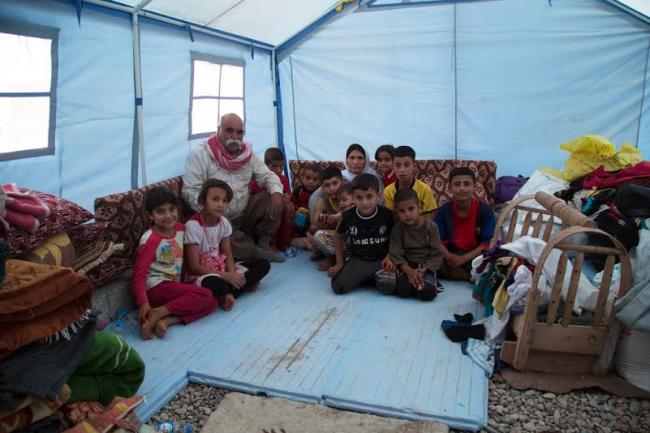Conflict
Crisis/Conflict/Terrorism Iraq: UN envoy expresses concern over growing violence in Kurdistan region
15 Oct 2015, 05:10 am Print

New York, Oct 15 (JEN): In Erbil on Wednesday, the United Nations Envoy for Iraq discussed concerns about the recent political tension and violence in the Kurdistan region with political party leaders and the Kurdistan Regional Government (KRG).
In his discussions, the Special Representative of the Secretary-General for Iraq, Ján Kubiš, expressed regrets at the latest developments in the region.
“I appreciate efforts to restore and maintain order and calm,” said Kubiš in a statement.
He added, “Confrontation should give way to bona fide political dialogue and negotiations, guided by principles of democracy and compromise.”
“There is an immediate need for all political parties to act with determination to further de-escalate the political tensions, prevent violence and find solutions to the protracted political impasse on the issue of the presidency and reforms without creating a power vacuum”, he continued.
“Its protraction risks exacerbating an already difficult situation for the population who faces enormous challenges, of such magnitude as the fight against Daesh, the budgetary crisis, economic and asocial hardship of the region’s population that moreover hosts around 1.7 million IDPs [internally displaced persons].”
Kubiš also noted that “political parties in the Kurdistan Region of Iraq need to prioritize peace, security and stability, for the sake of the people, the region and the country.”
“There is an immediate need for all political parties to act with determination to further de-escalate the political tensions, prevent violence and find solutions to the protracted political impasse on the issue of the presidency and reforms without creating a power vacuum”, he continued.
“Its protraction risks exacerbating an already difficult situation for the population who faces enormous challenges, of such magnitude as the fight against Daesh, the budgetary crisis, economic and asocial hardship of the region’s population that moreover hosts around 1.7 million IDPs [internally displaced persons].”
Kubiš also noted that “political parties in the Kurdistan Region of Iraq need to prioritize peace, security and stability, for the sake of the people, the region and the country.”
He urged “all political leaders to hear the voice of Peshmerga on the frontlines against Daesh, fighting the terrorist enemy to keep the KR-I stable, safe and united in the face of this threat, and to advance economic and social reforms and justice.”
He also condemned the loss of life, injury of protestors and police, and the destruction of offices that have occurred over the weekend.
“The authorities must ensure the right of people to demand peacefully their rights and good governance, while the protesters must respect the law and refrain from violence and provocations,” he said.
Kubiš also underlined that “accusations and inflammatory statements that have been directed by political parties at one another, also misusing traditional and social media, have contributed to increased tensions and to turning protests violent.”
“At the same time,” he continued, “the work of the media should be protected, and the current crisis should not be used to silence them, to impede the work of the journalists.”
Photo: OCHA/Charlotte Cans
He also condemned the loss of life, injury of protestors and police, and the destruction of offices that have occurred over the weekend.
“The authorities must ensure the right of people to demand peacefully their rights and good governance, while the protesters must respect the law and refrain from violence and provocations,” he said.
Kubiš also underlined that “accusations and inflammatory statements that have been directed by political parties at one another, also misusing traditional and social media, have contributed to increased tensions and to turning protests violent.”
“At the same time,” he continued, “the work of the media should be protected, and the current crisis should not be used to silence them, to impede the work of the journalists.”
Photo: OCHA/Charlotte Cans
More Conflict
- World fails again: Landmine casualties hit record levels as treaties stall
- Explosions, gunfire, panic: Inside the suicide attack on paramilitary forces headquarters in Peshawar that left three security officials dead
- Nigeria in shock: 215 students abducted after bandits invade Catholic school
- Back-to-Back blasts: Delhi shock followed by deadly Islamabad suicide attack, 12 dead
- Chaos in Court! AC explosion shakes Pakistan’s top judicial building, 12 injured



-1763561110.jpg)


